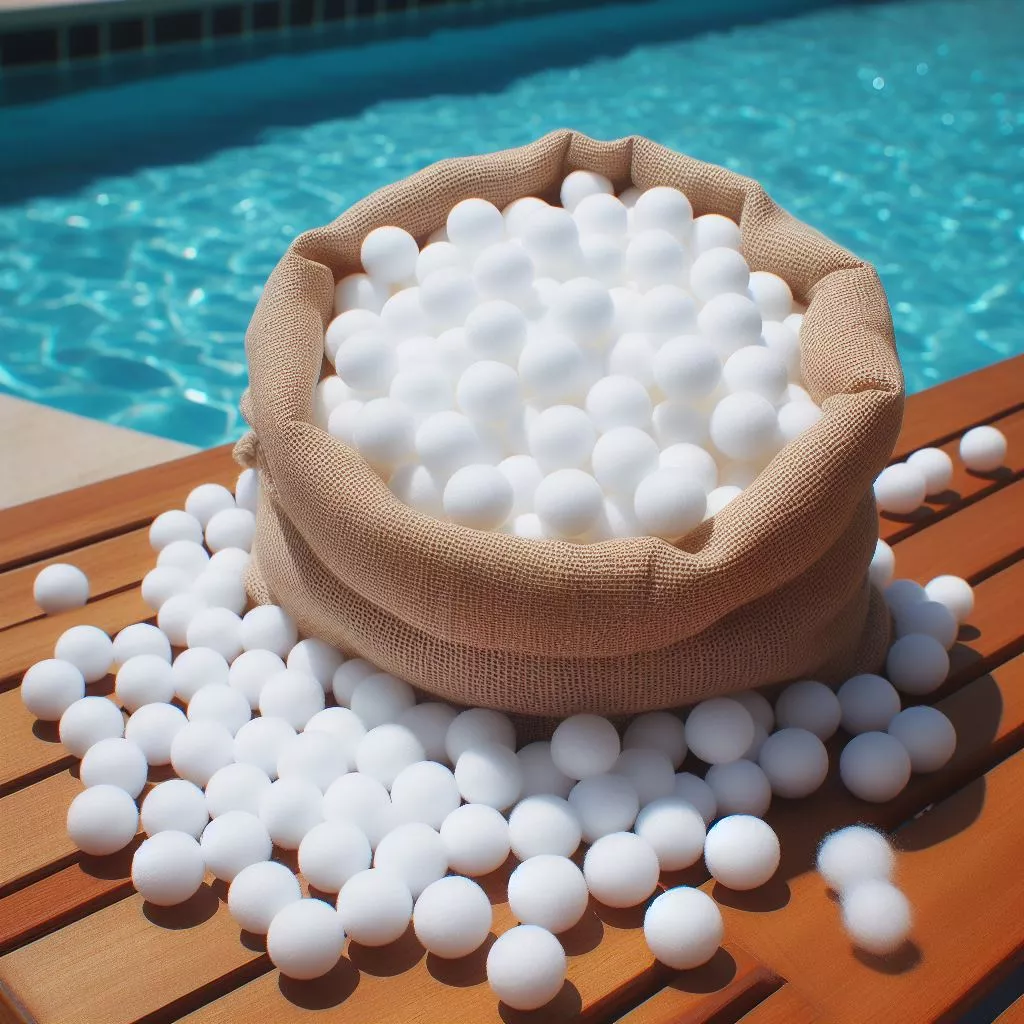Swimming pool maintenance is a critical aspect of ensuring a clean and enjoyable aquatic environment. In recent years, pool filter balls have emerged as an innovative alternative to traditional filter media, offering potential advantages in terms of efficiency and sustainability. In this comprehensive guide, we will explore and compare pool filter balls with other conventional filter media to help you make an informed decision for your pool.

Filter Media Overview
Traditional pool filter media includes sand, diatomaceous earth (DE), and cartridge filters. These have been widely used for years, each with its own set of pros and cons. Filter balls, on the other hand, are a relatively new entrant into the market, composed of durable, recyclable materials.
Filtration Efficiency
Pool filter balls boast exceptional filtration efficiency. Their spherical shape provides a larger surface area for trapping impurities, allowing them to capture finer particles compared to traditional media. This can result in cleaner water and potentially reduced chemical usage.
Water Clarity
The enhanced filtration capability of filter balls contributes to superior water clarity. By efficiently trapping microscopic particles, these balls can leave your pool water looking crystal clear, enhancing the overall aesthetics of your swimming pool.
Backwashing and Maintenance
One notable advantage of filter balls is their ease of maintenance. Unlike traditional media that requires backwashing frequently, filter balls can be easily cleaned by rinsing with a garden hose. This not only saves water but also reduces the overall maintenance effort.
Durability and Longevity
Pool filter balls are known for their durability, resisting degradation over time. Traditional filter media like sand may require replacement or re-bedding after a certain period. Filter balls, however, can last for several pool seasons, providing a longer lifespan and potentially reducing long-term costs.
Environmental Impact
As sustainability becomes a more significant concern, pool filter balls stand out for being eco-friendly. Made from recyclable materials, they offer a greener alternative compared to the mining and processing involved in manufacturing traditional filter media.
Weight and Handling
Filter balls are lightweight, making them easier to handle during installation and maintenance. This is in contrast to sand or DE, which can be heavy and cumbersome. The lightweight nature of filter balls also contributes to reduced wear and tear on the pool’s filtration system.
Cost Considerations
While the initial cost of pool filter balls may be higher than some traditional media, the long-term savings in water, energy, and replacement costs can offset this initial investment. Consider the overall cost of ownership when evaluating filter options.
Compatibility with Different Filters
Filter balls are designed to be compatible with various pool filter systems, including sand and cartridge filters. This adaptability makes them a versatile choice for pool owners looking to upgrade or retrofit their existing filtration setups.
Conclusion
In conclusion, the choice between pool filter balls and traditional filter media depends on your specific needs, preferences, and environmental considerations. While filter balls offer distinct advantages in terms of efficiency, maintenance, and sustainability, it’s essential to weigh these factors against the initial cost and compatibility with your existing pool system. Ultimately, a well-informed decision will contribute to a cleaner, clearer, and more sustainable swimming pool experience.

 Instant
Quote
Instant
Quote Email
Us
Email
Us